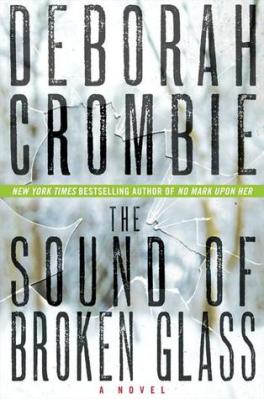A recent series of curious but unremarkable events led me to remember a slim volume sitting in the lower-reaches of one of my bookshelves. On the cover is an illustration; in the palm of a hand are three dominoes and in the night sky above is the constellation of Orion. The dots on the dominoes resemble the pattern of stars above. The book by Arthur Koestler is titled ‘The Roots of Coincidence’.
I leafed through it, reminding myself of its contents and in particular the theories of biologist Paul Kammerer who contends that events in the universe are connected by waves of seriality.
Carl Jung also coined the term synchronicity when pondering what appear to be random coincidences.
Events had unfolded a few days previously. It was a dark and threatening Sunday afternoon, rain in the air and a breeze whipping up from the river. Going to watch cricket or to take a cycle ride held little appeal.
I peeled spuds and parsnips, simmered a few bones and left some brisket of beef in the slow-cooker. Not much sport on the box and the internet red light was blinking on the router so Amazon Prime was not available. Terrestrial TV it was.
What a choice; The Simpsons, showjumping, an American crime forensics drama and an old movie. I switched to the film which had just started. Awakenings. Robert de Niro and Robin Williams in a slow-paced drama about hospital patients in a long state of catatonia being awakened by a drug usually used for Parkinson’s. The effect is temporary however and the patients’ lapse back into their previous state but not before enjoying the bitter-sweet experience that is life for one last time. Most movies I watch these days I reference via the Internet Movie Database (IMDB) on my mobile phone.
I switched the phone from wi-fi to mobile data and scanned the available information on Awakenings. Adapted from the book by Oliver Sacks. Hmmm that rang a bell. I looked him up. A British neurologist working in the Bronx who had administered large doses of the drug Levodopa and brought patients suffering from encephalitis lethargica, or sleepy sickness, back to life. So it was a true story.
It seems Sacks specialised in writing about his clinical experiences. The reason I vaguely knew his name was due to his most celebrated work:
‘The Man Who Mistook His Wife For A Hat’. This referred to another medical syndrome involving recognition.
The name of that book had somehow embedded itself into my brain cells at one time or another.
I made a note on Google Keep on my phone where I keep a list of books to buy or borrow from the library. I also awarded the movie 6/10 on my IMDB scoring list. I have never found out why you can’t award fractions such as 6.4.
Outside, drumbeat patterns of rain rattled the windows for most of the afternoon and my newly-planted spring flowers looked sodden and forlorn. I moved the lettuce container into the leaky garden shed which was already dripping over the plastic covering cardboxes of old books, CDs and VHS tapes.
In the kitchen I used the bone broth and brisket juices to make a rich gravy while the meat rested. I plated up and poured a small glass of Shiraz while listening to the cricket – apparently it was sunny at Trent Bridge – and watched droplets meander down my kitchen window.
That evening I tuned into the Radio 3 drama slot to see what was being aired. It was My Own Life which included a piece read by Joss Ackland on the final words written by….Oliver Sacks.
A few days later I was in one of the three or four local libraries I regularly visit. I returned Richard ll and Hilary Mantel and scouted for any of Sacks works, unsuccessfully. I had been attending a weekly course on creative writing and was expected to produce a short story during or at the end of the six week programme.
I had read Mantel’s ‘The Assassination of Margaret Thatcher’, a collection of short stories, that were, nothing short of tedious. It was interesting to read the comments on
Goodreads, another Amazon site dedicated to book lovers. Clearly devoted fans, absolutely effusive. I left a few negative replies, my main point musing how enthusiastic the response would be if these stories were read as if from an unknown writer.
I returned the book via the automatic machine now installed in some libraries, presumably part of the unrelenting campaign to oust people from their jobs. Mind you, in this part of town at least they have to employ a security guard. The baldy bouncer is none too friendly though. The other week I left my laptop momentarily in the computer suite as I searched for a book next door and he collared me, eyes popping, loudly berating me for enticing thieves; ‘they’ll rob you as soon as look at you round here’.
As I was dispatching Mantel into the letter-box mouth of the machine and marvelling that for the first time the patio doors were open into a garden area, I was touched on the elbow. A chap was in my face, carrying books under an arm, round-faced with glasses, straggly grey-hair.
‘Look at this’, he said, gazing about, ‘It’s not like Liverpool is it?’. No, I agreed. How could it be? Liverpool’s jewel of a library has had £50m lavished on it. He seemed vaguely familiar. I noticed the shaking hand and recalled I had sat next to him at the medical centre some time ago. I didn’t mention it, no point encouraging him and off he went.
I thought it might be an idea to try another volume of short stories and went to the section where they are all kept. I toyed with Julian Barnes, Ali Smith and JG Ballard. I like Ballard but his unremittingly bleak vision of an apocalyptic future sometimes needs light relief. Of course his vivid and imaginative prose is sublime but impossible to replicate.
I decided on Chekov. I’d never read any of his short stories but he was reputed to be a master of the art. I do like Russian literature but I realised that much of my experience had come from listening to BBC radio dramas and adaptions rather than actually reading the works. I mean, how many of us have time to trudge through ‘War and Peace’. However you can notice with some long and complex works that abridged versions cannot give you the full flavour of the text.
Not like say a Pinter play which is the same on the page as it is on the stage or to the ear.
I borrowed a book called ‘The Undiscovered Checkov’, so called because many of his earlier stories in Russian had not been translated into English before.
The young master, who came from poor stock, was a prolific writer. In his early days he bashed out the stuff like crazy just to bring some cash in. You think of him as a genius but even he would pay friends and family to come up with ideas, even plots.
One very short story is about when the American actress Sarah Bernhard visited Moscow. A simple but brilliant idea – actually ideal for social media now – involved different views of her put forward by people telegramming each other.
You can easily imagine doing this using Twitter of Facebook but Chekov came up with this more than 130 years ago (check).
I think magazine subscribers at the time found him readable as he was full of observations and vignettes rather than producing simple stories with a start, middle and end.
During the days following my visit to the library I was busy with one thing and another. One evening, I dined late and watched Newsnight. Donald Trump in hot water again, this time for yet another conspiracy involving Russians. Clearly his intention to ‘drain the swamp’ in Washington had incited the swamp-dwellers to get in a few shots. I wondered how long he would last.
I went off to bed and decided on a few pages of Chekov. I read the story about Sarah Bernhard and another set on a train. I then backpedalled to the introduction page, penned by an American actor.
I hadn’t heard of the guy, an American with a distinctive name called Spalding Gray. I Googled him on my phone. It’s always a bit uneasy when you read words that appear in your head immediately and then learn the writer died soon after penning them.
Gray had suffered injuries in a road accident while visiting Ireland in 2001. He suffered a broken hip and fractured skull which left him with a huge scar on his head. But just as damaging was the depression he sunk into. Gray’s work was personal, he liked to bare his soul in monologues. Later he struggled to come to term with his injuries.
One night in January 2004 he took his children to see Tim Burton’s Big Fish, a fantasy movie about a dying father and his son. It ends with the line: ‘A man tells a story over and over so many times he becomes the story. In that way he is immortal’.
After seeing the movie Gray disappeared. Two months later his body was dragged from the East River and it was assumed he had probably thrown himself off the Staten Island ferry.
Gray had sought medical help following the accident. His neurologist later said that his patient seemed to crave some sort of creative suicide. The neurologist was Oliver Sacks.






